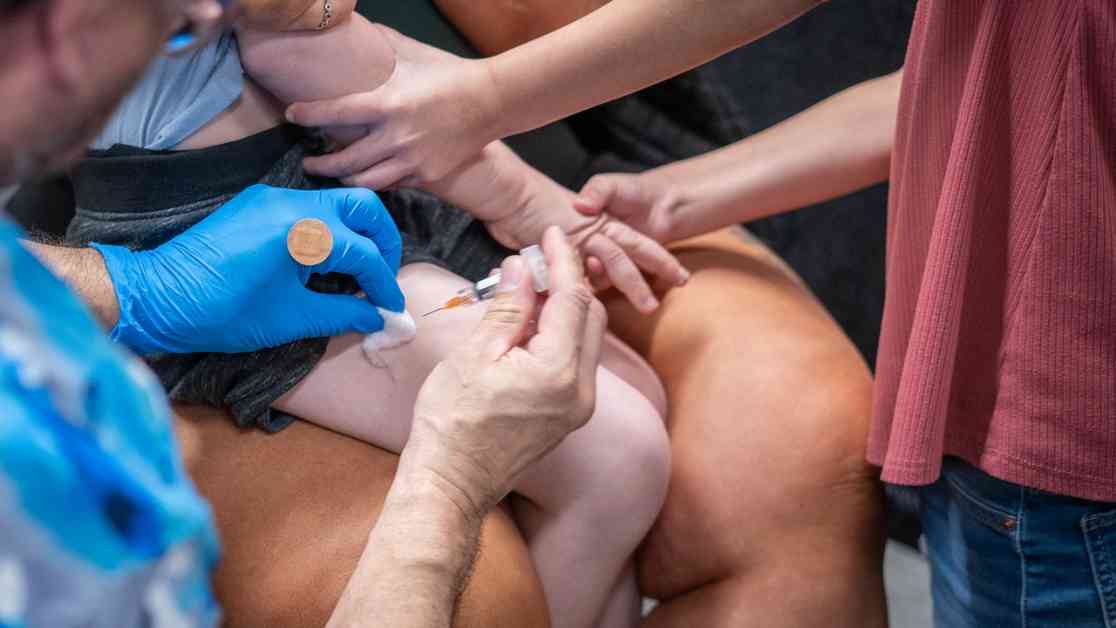On a recent Sunday, Robert F. Kennedy, Jr., who currently serves as the Secretary of the U.S. Department of Health and Human Services, penned an opinion piece for Fox News titled “Measles Outbreak Is Call to Action for All of Us.” In this article, Kennedy expressed his deep concern regarding the ongoing measles outbreak that was first identified in West Texas in late January. The outbreak has since escalated, with nearly two hundred confirmed cases, twenty-three hospitalizations, and tragic deaths of an unvaccinated child in Texas and an adult in New Mexico.
Kennedy’s position on vaccines is well-documented, as he has a longstanding history of crusading against them. He founded the anti-vaccine nonprofit Children’s Health Defense and served as its chairman and chief litigation counsel. Despite his previous anti-vaccine stance, Kennedy’s recent article seemed to suggest a shift in perspective, urging the importance of the MMR vaccine in preventing deadly diseases.
Kennedy’s Evolving Views
While Kennedy’s piece may hint at a change in tone, a closer examination reveals that his stance remains somewhat equivocal. Rather than outright recommending vaccination, Kennedy advised parents to consult with healthcare providers to explore their options regarding the MMR vaccine. This subtle shift in rhetoric suggests that Kennedy may be attempting to moderate his views, especially in light of the current measles outbreak.
Kennedy’s past comments linking the MMR vaccine to autism and leukemia have stirred controversy and skepticism within the medical community. Despite his anti-vaccine activism, Kennedy’s recent suggestions for over-the-counter solutions like vitamin A and cod-liver oil as alternatives to vaccination have raised eyebrows among experts. His nostalgic anecdotes about his childhood experience with measles, centered around chicken soup and vitamin A, stand in stark contrast to the potential long-term health implications of the virus.
The Deeper Impact of Measles
The inherent dangers of measles extend beyond the initial infection, as the virus can induce an immunosuppressed state that leaves patients vulnerable to secondary infections for weeks or even months. This immunological amnesia caused by measles can have lasting effects on a child’s immune system, increasing the risk of severe infections later in life. Studies have shown that measles outbreaks can lead to a rise in overall infectious disease mortality among children, underscoring the far-reaching consequences of the disease.
As the Secretary of the U.S. Department of Health and Human Services, Kennedy’s role in addressing the measles outbreak is crucial. However, his previous statements and actions, including pausing clinical trials and redirecting research priorities, have raised concerns among public health experts. The potential impact of Kennedy’s decisions on vaccine availability and affordability could have far-reaching implications for disease prevention efforts in the United States.
In conclusion, Robert F. Kennedy, Jr.’s complex relationship with vaccines and public health policy continues to spark debate and controversy. As he navigates his role in addressing the measles outbreak, the broader implications of his actions and rhetoric remain a topic of concern for healthcare professionals and the general public. The delicate balance between personal choice and public health underscores the ongoing challenges in combating infectious diseases and promoting overall well-being.












